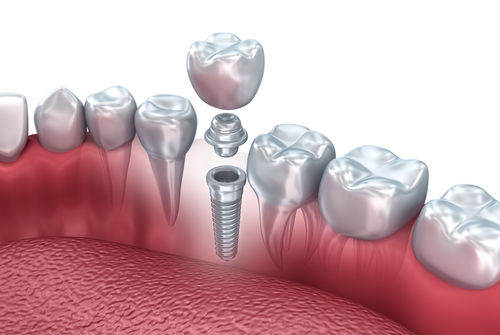Preventive dentistry is essential for maintaining good oral health throughout your life. This approach focuses on preventing dental issues before they become severe, saving you time, money, and discomfort. From regular dental checkups to maintaining good oral hygiene at home, preventive care helps you keep your teeth and gums healthy for years to come.
In this blog, we will discuss why preventive dentistry is so important, the benefits it offers, and the key components involved in maintaining your oral health.
What is Preventive Dentistry?
Preventive dentistry involves a combination of professional dental care and at-home hygiene practices aimed at preventing dental issues like cavities, gum disease, and tooth decay. By taking a proactive approach to dental care, preventive dentistry helps patients avoid more serious and expensive treatments in the future.
Why Preventive Dentistry is Crucial
Preventive dental care is more than just about avoiding dental issues—it also contributes to your overall health. Here are some reasons why preventive dentistry is so essential:
Early Detection of Problems
One of the key benefits of preventive dentistry is the early detection of potential issues. Regular dental checkups allow your dentist to identify problems like cavities, gum disease, or oral cancer in their early stages when they are much easier to treat.
Cost Savings
Preventive dentistry can save you money in the long run. By addressing small dental issues early, you can avoid costly treatments such as root canals, crowns, or tooth extractions. Preventive care is a much more affordable option than restorative procedures.
Better Overall Health
Your oral health is closely connected to your overall health. Poor oral hygiene can lead to a variety of systemic health issues, including heart disease, diabetes, and respiratory infections. Maintaining good oral health through preventive care helps protect your overall well-being.
Key Components of Preventive Dentistry
There are several key components to a successful preventive dental care routine:
Regular Dental Checkups
Visiting your dentist regularly—usually every six months—is essential for maintaining good oral health. During these checkups, your dentist will examine your teeth and gums, take X-rays if necessary, and provide a professional cleaning to remove plaque and tartar.
Professional Cleanings
Even with excellent brushing and flossing habits, plaque and tartar can build up on your teeth. A professional dental cleaning helps remove these deposits and prevent cavities and gum disease. Your hygienist will also polish your teeth to remove surface stains, leaving your smile looking fresh and clean.
Fluoride Treatments
Fluoride is a natural mineral that strengthens tooth enamel and helps prevent decay. Fluoride treatments are often provided during routine dental visits and can be particularly beneficial for children and adults at higher risk for cavities.
Dental Sealants
Dental sealants are thin, protective coatings applied to the chewing surfaces of the back teeth (molars) to prevent cavities. Sealants are especially useful for children but can also benefit adults who are prone to cavities in these areas.
At-Home Oral Hygiene
Good oral hygiene starts at home. Brushing your teeth twice a day with fluoride toothpaste and flossing daily are essential steps for maintaining oral health. Your dentist can provide tips on proper brushing and flossing techniques, as well as recommend the best oral care products for your needs.









